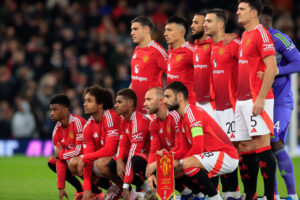For years, a certain Arsenal midfielder was among the world’s most creative players. However, in recent seasons Mesut Ozil has seen his form disintegrate rapidly, going from lighting the Premier League on fire with 19 assists in the 2015/16 season to getting off to a torrid start in the 2018/19 campaign. Mesut Ozil’s decline is one for the record books.
An Examination of Mesut Ozil’s Decline
Current Form
The former German international’s start to the current league season leaves much to be desired, especially when compared to two of his peers.

The above information is the passing statistics for these three players through matchday four of the Premier League. Likely the most striking fact is that Ozil does not best any of his rivals in any category; this is somewhat of a surprise considering his huge wages.
One of the most damning statistics must be the lack of key passes. Mesut Ozil is meant to be Arsenal’s main creative influence, yet he has managed only one key pass per match. Especially when compared to Eden Hazard’s 2.5 key passes per match, with two appearances coming from the bench, Ozil’s output is simply ignominious.
Last Season’s Form
The passing data from last season yields something surprising about Mesut Ozil’s decline. While he has long been maligned by pundits for a perceived lack of effort and lack of end product, Ozil’s passing from last season is, at the very least, respectable compared to this season’s numbers.

Ozil had more key passes, average passes and through balls per 90 than either Hazard or Eriksen, plus a better passing percentage. Though he did not dominate his two rivals in every aspect, it is clear that Ozil’s early season difficulties are not par for the course.
Before reaching a verdict on Mesut Ozil’s decline, it is worthwhile to look at his numbers season by season.
Form From Previous Years
Just how much worse is Ozil now compared to his electric 2015/16 campaign? The results are stunning, to say the least.

There is a very clear drop in output between last year and the start of the current campaign. There is a drastic drop in key passes, average passes, crosses, long balls and through balls per match. Plus, Ozil’s passing percentage is below 80% for the first time in his Premier League career.
Such a massive drop in performance begs the question; what is the cause of Mesut Ozil’s decline?
Tactical Shift
The first reason for Mesut Ozil’s decline can be attributed to a tactical change under Arsenal’s new manager, Unai Emery. The former PSG manager has already imposed his high-pressing style upon the Gunners, even after just four games.
With the ball, Arsenal build from the back, same as under Arsène Wenger. While this tactic can be beneficial for a passing specialist like Ozil, he is not afforded the same autonomy under Emery as he had under Wenger.
We can see this reflected by the fewer number of crosses, long balls and through balls that Ozil has competed this season. He is simply not given license to drop back to collect the ball or meander between wings to connect play. Instead, Emery has given the player specific instructions which must be followed to the letter.
Such rigidity lends itself to defensive solidity, however, the effects are felt by creative players such as Ozil.
Change in Mentality
The effects of Mesut Ozil’s decline are observable outside of Arsenal. His performances for Die Mannschaft also began to degrade following the controversial meeting between himself, Ilkay Gundogan and Turkish President Recep Erdogan earlier in 2018.
That incident was the beginning of the end of Ozil’s tenure with the German national team, with the player announcing his international retirement just weeks after their elimination at the hands of South Korea.
Many have come out to support Ozil, however, there are many more who have condemned the player. While it is normal for a footballer to hear pundits being critical of their play, it is fairly unusual for former teammates to echo such sentiments publically.
No one can speak for the goings-on inside the midfielder’s head, however, the amount of criticism laid at his feet must surely have played a hand in Mesut Ozil’s decline.
Broader Tactical Change
The final reason for Mesut Ozil’s decline is something over which the player holds no influence. That is the broader change away from the traditional number ten.
Few, if any, top clubs regularly field a so-called ‘luxury player’ such as Ozil. These are players who are a joy to watch on the ball, but who do not have the skillset to affect the game without it.
A good contrast to Ozil would be Kevin De Bruyne.

The numbers show that De Bruyne was much more involved in his team’s build-up play than Ozil last season. His greater number of total passes, crosses, long balls and through balls reflect this fact. The Manchester City playmaker’s contributions are likewise greater off the ball.

De Bruyne is much more involved in defending compared to Ozil. This helps his team in two ways; first, it keeps goals out of Ederson’s net. Second, this allows Kevin De Bruyne more time on the ball as he is closer to it when his team wins it back.
Modern high-pressing tactics aim to win the ball back high up the pitch, creating chances while their opponent is transitioning from attack to defence. If a player is not involved in the defending, he will be less able to contribute to attack.
Ozil’s penchant to let his teammates defend means that the German is farther away from the play when a turnover occurs. This lessens his impact on the match.
In a world when high pressing is the preferred tactic, a player who chooses not to defend, or perhaps does not have the skillset to do so, is far less effective than one who does defend.
The Last Word
Mesut Ozil’s decline is very unfortunate for the player, the club and the fans. However, his drop in performance is very real and observable in his statistics.
At age 29, it is difficult to envision the one-time World Cup winner changing his spots and adapting to modern tactics. This is putting to one side the probable change in mentality which is plaguing Ozil.
It is unfortunate, however, football may have seen the last of Mesut Ozil’s brilliance. Instead, the recent fall from grace may be the new norm for the remainder of Ozil’s time in north London.
Statistics courtesy of Whoscored.
Main Photo
Embed from Getty Images






